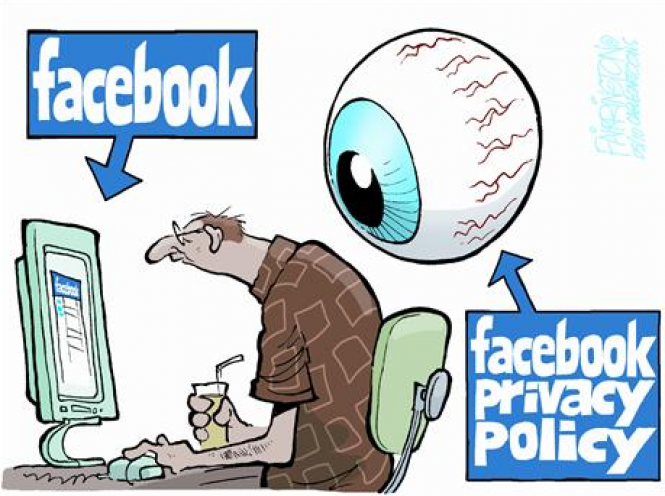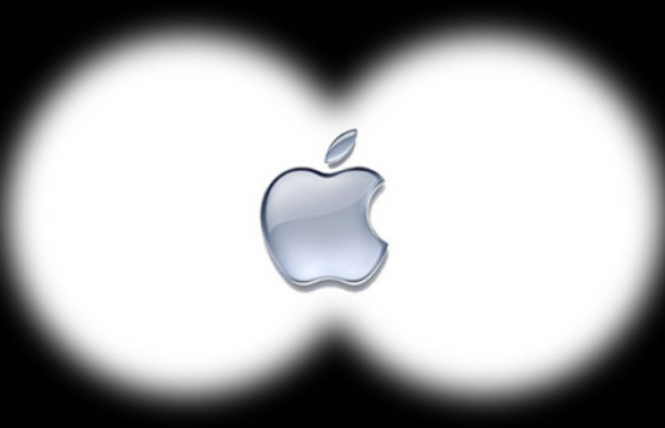How IT giants make money from seemingly "free" services
How IT giants make money from seemingly
There are different popular currencies: US dollar, UK pound or EU
Euro. Indeed, whenever we meet a monetary unit that we are not familiar
with, we can always use a search engine to find out exactly how much
it's worth. Even shadier, unregulated money such as the Bitcoin, is
becoming more popular and known to a lot of people. However, there's one
currency that we (the regular people) are not familiar with and for
which nobody seems to be doing a good job at defining the value: the user.
Do you have an email? How about a Facebook account? Do you use search
engines? Did you pay for any of them? Of course you didn't pay, they're
free! But the best question that you can ask yourself is: "Why are
these free?". Seriously, if I came over to you in the street and offered
you free drinks, free food or free anything I'm sure you would be very
suspicious and ask me what am I getting out of that, but for some reason
the same rule doesn't apply to the Internet. Most people sign up for
all kinds of free services without ever wondering what's the trade-off,
and that is one of the main reasons why companies like Facebook, Google,
Apple have become IT giants. In case you're ready to find out, here's
the real price you pay for using these companies' "free" services and
what you can do about it.
Google
Google has been around for a long while and is offering a bunch of free services such as Google search, Gmail, G+, YouTube, Google Maps, Chrome etc. In order to make money, they allow advertisers to put ads on those services, but targeted advertising is how the real bucks are made. How does this work? The company collects a wealth of personal information about you such as name, email, phone number, services usage, device data, search queries, website interactions, etc. then sells it to advertisers who can then come up with personalized ads.
If you're tired of generalizations, here are some examples of Google's features: Customer Match is a recently launched program that ties your email to your profile. Basically, if you've given your email to a hotel to send you the reservation confirmations, that respective hotel can sign up for Customer Match, and you will end up seeing ads for it while you're browsing YouTube (or a different Google service). Want one more? Gmail now supports native ads which are available to all of Google's AdWords clients, so the users end-up with targeted ads directly inserted into their inboxes.
Fortunately, Google is not one of those companies that says "It's my way or the highway", and the users have plenty of privacy options to control the data that's being taken. However, since many people don't know about these configurations, they don't use them, and the Mountain View-based company can do everything it wants. So, if you want to understand and customize exactly what personal data Google's services can get from you, I suggest checking out Google's privacy policy. There, you will also find links to the privacy controls you can use.
Furthermore, there is a couple of things I'm not completely sure about, so I chose not to mention them. I couldn't find enough information about the data that Google collects from the users of Android operating systems and I'm not sure about how the company acts as an Internet Service Provider (since it's not available in my country), so we'll have to leave those for another time.
Facebook
Facebook's privacy issues are one of the most discussed topics, and the main reason why I actually don't have an account on the social network. Curious about what data does this IT giant collect from you? Well, let's just say it knows pretty much everything there is to know: the people you care about, what you like, what websites you visit, where you are, your phone number and a great deal of other information. Don't believe me? Here's a part of their privacy policy: "We collect the content and other information you provide when you use our Services, including when you sign up for an account, create or share, and message or communicate with others. [..] We collect information about the people and groups you are connected to and how you interact with them, such as the people you communicate with the most or the groups you like to share with. [..] We receive information about you and your activities on and off Facebook from third-party partners, such as information from a partner when we jointly offer services or from an advertiser about your experiences or interactions with them. [..] We collect information when you visit or use third-party websites and apps that use our Services (like when they offer our Like button or Facebook Log In or use our measurement and advertising services)."
Beside being one of the best data sellers for advertisers (I'm unsure which is currently number one, Facebook or Google), the social network also benefits a lot from the fact that more than a half of its users access the service from a mobile device. This is great for the company as it means they are far less likely to use an ad-blocker, which means even more money. As far as current projects go, the social network just launched a new one which will allow advertisers to create unified ads for Facebook and TV. Furthermore, those in charge of promoting products will soon be able to poll the users and see how effective the advertisement actually was.
Curious about what you can do to stop Facebook from selling you for cash? Unfortunately, not that much. Sure, there are some privacy settings which theoretically allow you to restrict Facebook's knowledge about your online activities, but I've stopped believing in fairy tales a long time ago. A while back, I wrote a story about how Belgian researchers discovered that Facebook tracks you, whether you agree or not; you can check it out if you want more details. To top it all off, even if you delete your Facebook account, the company reserves the right to keep all the data it had collected about you for as long as is pleases, so that isn't an effective solution either.
Want to have fun? Facebook now allows its users to download all the data the company has about them. If you want to try it out, you can do so by clicking on this link.
Another huge issue comes from the newly introduced add-blockers that came along with iOS 9. Don't get me wrong, I think that being able to stop unwanted advertisements from bothering you is wonderful. However, many companies say that it's unfair that Apple is stopping them from collecting data while the IT giant does it without any kind of problems. What can you do to stop Apple from collecting data about you? There are a few settings that you can customize, but it's not as easy as they advertise it to be. Here is a manual with the privacy options that you have and how to use them.
The one thing that I really like about Microsoft is that it's unexpectedly clear about the matter, disclosing exactly what data it takes. However, these confessions can become a bit scary, especially when you find out that it collects your typed and hand-written words, the changes you generally make to texts, the words you add to the dictionary, the content of your emails or instant messages, the voice and video calls you're in, dictations, etc.
What can you do to stop this from happening? Well, the good news is that there are many privacy tweaks which can help you decide what Microsoft sees. You can either use an application to help you out, (as seen in "How to fix Windows 10's privacy issues with Windows Tweaker") or open the Settings windows in the Start Menu, go to the Privacy settings and manually select the configuration that you want.
And while we're at it, at least reading this story on our website was free... or was it?!
If you're tired of generalizations, here are some examples of Google's features: Customer Match is a recently launched program that ties your email to your profile. Basically, if you've given your email to a hotel to send you the reservation confirmations, that respective hotel can sign up for Customer Match, and you will end up seeing ads for it while you're browsing YouTube (or a different Google service). Want one more? Gmail now supports native ads which are available to all of Google's AdWords clients, so the users end-up with targeted ads directly inserted into their inboxes.
Fortunately, Google is not one of those companies that says "It's my way or the highway", and the users have plenty of privacy options to control the data that's being taken. However, since many people don't know about these configurations, they don't use them, and the Mountain View-based company can do everything it wants. So, if you want to understand and customize exactly what personal data Google's services can get from you, I suggest checking out Google's privacy policy. There, you will also find links to the privacy controls you can use.
Furthermore, there is a couple of things I'm not completely sure about, so I chose not to mention them. I couldn't find enough information about the data that Google collects from the users of Android operating systems and I'm not sure about how the company acts as an Internet Service Provider (since it's not available in my country), so we'll have to leave those for another time.
Beside being one of the best data sellers for advertisers (I'm unsure which is currently number one, Facebook or Google), the social network also benefits a lot from the fact that more than a half of its users access the service from a mobile device. This is great for the company as it means they are far less likely to use an ad-blocker, which means even more money. As far as current projects go, the social network just launched a new one which will allow advertisers to create unified ads for Facebook and TV. Furthermore, those in charge of promoting products will soon be able to poll the users and see how effective the advertisement actually was.
Curious about what you can do to stop Facebook from selling you for cash? Unfortunately, not that much. Sure, there are some privacy settings which theoretically allow you to restrict Facebook's knowledge about your online activities, but I've stopped believing in fairy tales a long time ago. A while back, I wrote a story about how Belgian researchers discovered that Facebook tracks you, whether you agree or not; you can check it out if you want more details. To top it all off, even if you delete your Facebook account, the company reserves the right to keep all the data it had collected about you for as long as is pleases, so that isn't an effective solution either.
Want to have fun? Facebook now allows its users to download all the data the company has about them. If you want to try it out, you can do so by clicking on this link.
Apple
Apple may not be as bad as the previous two companies, but that doesn't mean that they're some kind of privacy champions. What bothers me and probably a lot of people about this IT giant is that even though it proudly announces that it's making the ways in which it uses your data very clear, that's not exactly accurate. Their privacy policy is actually much more confusing than Google's or Facebook's, since, instead of explicitly listing the information that the company collects, it lists the data that it does not. As far as I know, Apple collects your name, phone number, the music that you listen to, location, various preferences, etc., but it links all of them to a random ID instead of your actual name, which makes it somewhat better.Another huge issue comes from the newly introduced add-blockers that came along with iOS 9. Don't get me wrong, I think that being able to stop unwanted advertisements from bothering you is wonderful. However, many companies say that it's unfair that Apple is stopping them from collecting data while the IT giant does it without any kind of problems. What can you do to stop Apple from collecting data about you? There are a few settings that you can customize, but it's not as easy as they advertise it to be. Here is a manual with the privacy options that you have and how to use them.
Microsoft
The Redmond-based company use to have very few privacy-related complaints, until the word "free" came into play. As soon as they offered Windows 10 as a free upgrade, things started getting insane, and the company was blamed for spying and stealing a lot of their customers' private data. In case you're not familiar with the subject, you should read my previous article "Are Windows 10's privacy issues real?". However, in the time since I wrote that story, Microsoft has clarified some of the issues and "pinky promised" that it doesn't sell your data. (I'm still not convinced, but I could just be paranoid.)The one thing that I really like about Microsoft is that it's unexpectedly clear about the matter, disclosing exactly what data it takes. However, these confessions can become a bit scary, especially when you find out that it collects your typed and hand-written words, the changes you generally make to texts, the words you add to the dictionary, the content of your emails or instant messages, the voice and video calls you're in, dictations, etc.
What can you do to stop this from happening? Well, the good news is that there are many privacy tweaks which can help you decide what Microsoft sees. You can either use an application to help you out, (as seen in "How to fix Windows 10's privacy issues with Windows Tweaker") or open the Settings windows in the Start Menu, go to the Privacy settings and manually select the configuration that you want.
Conclusion
Don't get me wrong, I'm not saying that "all of these are bad, don't ever use them". (Let's be honest, it's almost impossible to be on the Internet and not use at least one of the services offered by these companies.) I just thought you deserved to be informed about the actual cost of "free" services and how we, the users, have become one of the most profitable currencies on the Web.And while we're at it, at least reading this story on our website was free... or was it?!
How IT giants make money from seemingly "free" services
![How IT giants make money from seemingly "free" services]() Reviewed by Ayoubpro24
on
6:03 ص
Rating:
Reviewed by Ayoubpro24
on
6:03 ص
Rating:






ليست هناك تعليقات: